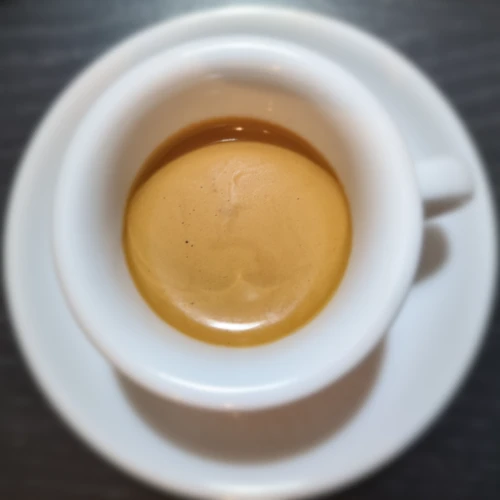See Naples and die
No, the title is not wrong; it is indeed Drink coffee in Naples and then die. Let’s revisit the concept of the beauty of Naples, and then we will understand the connection with coffee.
The expression “See Naples and die” encapsulates a concept that highlights the exceptional and unparalleled beauty of Naples, suggesting that every other subsequent experience would be insignificant. This phrase implies that visiting Naples is such an extraordinary experience that everything else becomes secondary.
During his stay in Naples in February 1787, Johann Wolfgang von Goethe fell in love with the natural, architectural, and cultural beauties of the city. Forced to return to Germany, he exclaimed Siehe Neapel und stirb, expressing his deep attachment.
This coffee is a ciofeca
Video contribution from Totò, in which he utters his famous line: This coffee is a ciofeca .
The question is: Is there good coffee in Naples?

In the photo, coffee extracted from La Pavoni Stradivari 100% Arabica.
If you visit Naples or any place in our Campania, you will find numerous renowned pizzerias ready to offer you a Pizza 2.0, also known as Gourmet Pizza. You will discover many restaurants, some of which even boast a Michelin star… In the world of coffee, a virtuous spiral of Coffee 2.0, or Gourmet Coffee, has developed.
What an international shitshow1
Around ten years ago, a Report investigation by RAI (Radiotelevisione italiana), aired on 07/04/2014, highlighted significant errors in coffee preparation, raising concerns about aggressive roasting Espresso nel caffè .
The investigation stirred up a controversy about the way coffee is prepared in Naples, but have things changed?
I invite you to watch the new investigation by Report of the RAI (Radiotelevisione italiana) on 15/12/2024 La Repubblica della ciofeca .
How is coffee prepared in bars in Ticino? The investigation by the Patti Chiari program of RSI (Radiotelevisione Svizzera di lingua Italiana) Un caffè grazie - Patti Chiari .
I’ll explain the Neapolitan coffee
Campanian roasters are renowned for their tradition in coffee roasting, which involves a pushed process that leads to having a very dark and oily coffee bean.
The roasting process consists of heating coffee beans at high temperatures, causing the release of carbon dioxide and other compounds inside the bean. When the coffee bean comes into contact with air during cooling, a reaction occurs that releases the natural oils present in the bean, making it shiny and oily on the surface.
However, this intense roasting process can have some disadvantages. The more the coffee bean is roasted, the more its surface becomes shiny and oily, but at the same time the more delicate its preservation. Natural oils can easily go rancid, altering the taste and aroma of the coffee. Additionally, the same oils can stain the grinder and its components more significantly, as well as altering and oxidizing irreversibly upon prolonged contact with air.
A cup of Neapolitan coffee prepared incorrectly can have a burnt charcoal taste and cause serious digestive problems.
I will postpone reading the article Liaison between neapolitan babà, coffee and… where I explain how to evaluate a bar and run away before having a cup of coffee that will make you 💩.
Caffè arruscato
The Neapolitan inventiveness knows no bounds, caught between folklore and a stubborn adherence to questionable positions. In the Report interview, the president of Kimbo, Mario Rubino, says that Neapolitan coffee is liked precisely because it is Caffè arruscato!
It would be possible to obtain a stronger coffee, but if the barista does not know how to handle this process, there is a risk of obtaining a really disgusting coffee of biblical proportions. It is unacceptable to see dirty coffee machines and grinders with yellowed residues left by coffee beans, not to mention the importance of purging after each extraction, which is essential to avoid transmitting unpleasant flavors in subsequent extractions.
I alter your taste buds
In other words, if consumers are used to overly roasted coffee and do not have the opportunity to try different roast levels, their palate becomes accustomed to strong and burnt flavors. This makes it difficult for them to appreciate the more delicate and complex flavors and aromas that can be found in a properly roasted and brewed cup of coffee.
It can be stated that roasters have influenced the consumer’s taste buds.
Just like with wine, the same applies to coffee.
Is it too much to ask for a variety of choices, as is the case with wine?
It is truly embarrassing to think that Italy, the home of the best coffee machines in the world and the birthplace of espresso, could lose this prestigious title earned through many sacrifices over the years. ↩︎
